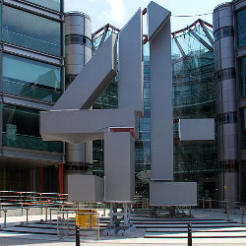Dispatches was a “hatchet job masquerading as investigative journalism”, but we must confront its allegations of unethical practice, says Ian MacQuillin.
It had been about eight months since the last media ‘exposé’ of charities so we were due a kick in the nuts during the silly season for news, and Dispatches was next off the cab rank.
The programme’s content has been widely reported so we need only recap the two main allegations of bad practice. Managers were filmed telling callers that it was ok for them to fib to donors to maintain the flow of a conversation, such as pretending they had kids. And there was some possibly unethical practice in terms of interpreting people’s intentions on whether they were categorically stating they did not want to be called back or whether they could be marked as a ‘soft’ refusal. These are only possible ethical breaches because such allegations must be argued for and substantiated, not merely assumed.
However, these potentially serious allegations were cocooned in yet another abysmal hatchet job masquerading as investigative journalism. For all the effort involved in infiltrating two call centres, Dispatches didn’t uncover all that much. Most of the time, the undercover journalists acted as agents provocateurs, trying to goad their managers into saying something they could then wag their fingers at while exclaiming “ah-ha, unethical fundraising, we knew it”. Most of the time, their attempts at entrapment led to very little, like when the Pell & Bales manager said it was ok for the undercover reporter to say she was calling from P&B, rather than ‘on behalf of’ a charity, if she felt more comfortable with that.
Dispatches made one spectacular error – a total misunderstanding of when the solicitation statement is required. The programme relied on one academic’s erroneous interpretation of Cabinet Office guidance. But there is absolutely no requirement that the solicitation statement must be delivered before a donation is requested or offered, as Dispatches claimed, only that it must be made during the call. Why didn’t Dispatches ask the Cabinet Office to explain its own guidance; or talk to the Institute of Fundraising?
And so Dispatches enters the pantheon of media hatchet jobs alongside, among others, Newsnight 2010 and Panorama 2013. The sector responded quite strongly and forcefully on Twitter. War Child issued a stream of tweets supporting telephone fundraising – and all power to them for doing so, especially as they were not featured in the programme and had no vested interest in becoming involved. Many fundraisers gilded their tweets about the Dispatches programme with #proudfundraiser.
But this is where it becomes a problem. Compared to its collective head-in-the-sand mentality from just a few years ago, fundraising has made great strides in its preparedness to stand up for itself in the public domain. Yet programmes such as Dispatches risk dragging us back into a ghetto mentality. The media holds many preconceptions about fundraising and, lo and behold, their investigations confirm those preconceptions. But our expectations of another biased media assault should not feed our own self-fulfilling prophecies and influence how we respond to media investigations.
Dispatches did, after all, relatively easily uncover evidence for what could be an institutionalised readiness to lie to donors. We must accept those allegations and deal with them. That does not just mean a knee-jerk cutting of ties with any agency concerned, nor disciplining any call centre staff member thought to be behaving unethically and considering the case to be closed. If the system encourages lying to donors, it is not fair to punish individuals without reforming the system.
It means accepting that there might – only might – be something fundamentally at fault with our fundraising and considering what we might need to do to rectify that situation. What we must not do is dismiss any such allegations out of hand because the programme they were contained in was biased and, well, a bit crap.
The #proudfundraiser campaign is not a magic spell that can be cast to make allegations of unethical practice disappear.









